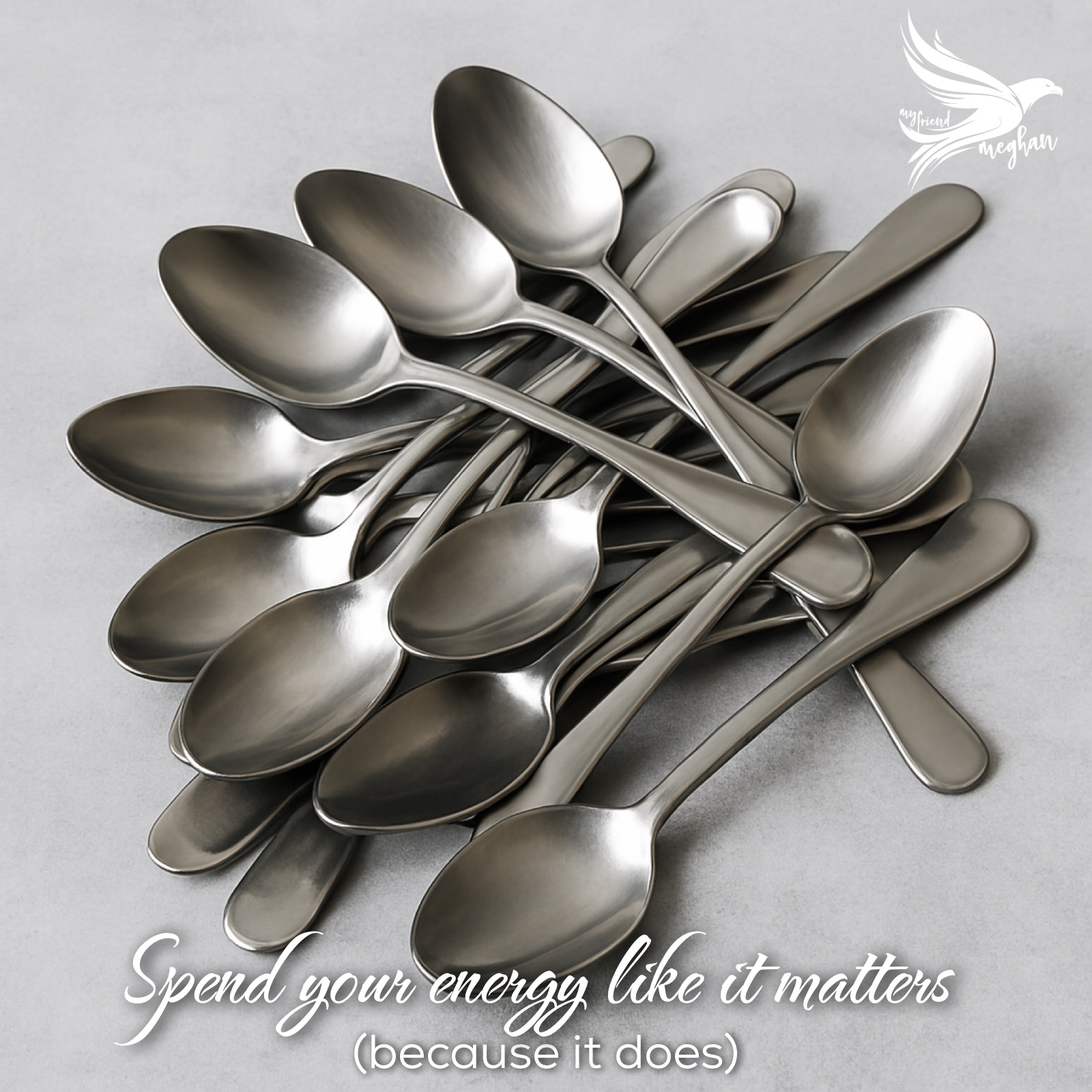When I was younger, I had what felt like endless energy—like a bank account that never ran dry. I gave freely, poured into others, juggled commitments, and rarely thought twice about the cost. It wasn’t until I hit burnout that I realized just how valuable that energy truly was. Suddenly, it was like I had one “spoon” to spend for the entire week.
What Is Spoon Theory?
Spoon Theory—a term coined by Christine Miserandino—describes how people with chronic illness or neurodivergence often have a limited supply of “spoons,” or units of energy, each day. Once those spoons are gone, they’re gone. That metaphor helped me understand what my body was trying to tell me: your energy is currency. And it’s time to start spending it with intention.
Choose What’s Worth the Cost
Every word, reaction, or engagement costs something. Before you invest it, ask yourself: is this worth the price? Just like with money, not every “opportunity” is worth funding.
Engaging in conflict or rumination over things outside your control is like making a bad investment—it drains you without any return. Another example is trying to chase down a conversation with someone who’s clearly not ready—forcing clarity before its time. Since force takes more energy, it means you’re “overspending.” Think of it like swimming upstream—it burns far more energy than flowing with the current. The more you resist the natural flow, the more energy it costs you. In contrast, authority (yielding to the flow) means holding your peace, trusting the right moment will come, and letting your presence speak for itself. Whether it’s a bad investment or an overexpenditure of energy through force, the result is the same: you’re depleted. So spend wisely.
Silence can be a powerful savings strategy. Choosing not to explain, correct, or engage isn’t weakness—it’s wisdom. You don’t owe everyone a response. Protect your energetic wealth by spending only where the return is aligned with your peace.
Actionable Insights
- Recognize your energy as currency. Every interaction costs you something. Is this person, thought, or conversation worth the investment?
- Pause before you spend. Don’t give away your energy reactively. Ask yourself if your response aligns with your values—or just feeds unnecessary drama.
- Track your energetic “budget.” Pay attention to what drains you and what restores you. Adjust accordingly to maintain emotional and spiritual sustainability.
- Protect your peace. You don’t have to engage to prove your worth. Sometimes the most powerful move is to walk away with your energy intact.
Energy as Currency is the 3rd of the 13 Keys for Empowered Communication.
The 13 Keys are:
- You Are Responsible for the Energy You Bring
- Power vs. Force
- Energy as Currency
- Healthy Boundaries and Letting Go
- Release the Illusion of Control
- Release and Transmute Energy
- The Role of Forgiveness in Energy Release
- Know Your Own Weaknesses
- The Importance of Self-Validation
- Thought Patterns Shape Reality
- Manifestation and Mental Focus
- Trust the Timing of Others’ Journeys
- The Art of Non-Reaction


Leave a Reply